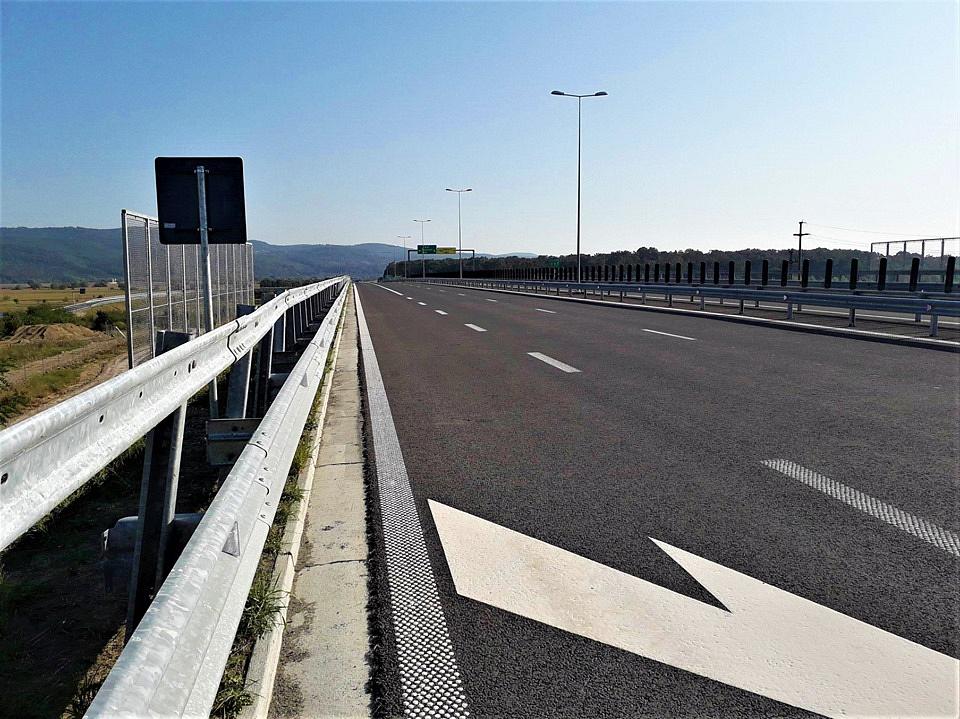Romania faces potential diplomatic conflict with Spain over 21-km highway segment



A dispute between Romania’s state-controlled highways company – CNAIR and an association of Spanish construction companies that have built a 21-kilometer highway section in central Romania could cause a diplomatic conflict between Romania and Spain.
The Spanish companies have asked diplomats to step in for solving their dispute with the Romanian Transport Ministry, which controls CNAIR.
CNAIR canceled the contract with the association of companies Comsa (Spain), Aldesa Construccion (Spain), Teloxim Con (Romania) and Arcadis (Netherlands) for the construction of the third segment of the Lugoj-Deva highway, on August 28, just before the final reception. The association executed 99% of the work on this highway segment. CNAIR invoked serious problems on the respective highway section and executed the guarantees in the contract arguing that it needed to fix the problems itself. Meanwhile, the construction companies claim CNAIR still has to pay them a significant amount for the work.
“We have opened a diplomatic conflict at the Spanish Embassy and Romania’s ambassador to Spain will be called for discussions, because Spain and Romania are friend countries, as our ambassador says, and one does not do this to a friend country,” said Fernando Lana Hernandez, director of International Construction at Aldesa Construccion as he addressed the transport expert committee of the Romanian Chamber of Deputies on Wednesday, September 12.
He added that the European Commission was also notified about this conflict. “We have claimed discrimination against foreign companies,” said the Aldesa representative, according to Agerpres.
His statements came just days after CNAIR executed the guarantees set by the Spanish construction companies for the quality of the work on this highway segment. Courts in Spain and Romania suspended the execution of the guarantees on Friday, September 6. However, CNAIR managed to have the money transferred to its accounts on Thursday evening.
In response, the construction companies said they were seriously considering going to court against the Romanian state, considering that the Transport Ministry cancelled the contract abusively. “Unfortunately, I must say that what happened to us here hasn’t happened in any other country. With the work completed, the contract was canceled,” said Fernando Lana Hernandez.
CNAIR general manager Sorin Scarlat said that the company has identified 60 non-conformities on the 21.14-kilometer segment, which could be a record. Moreover, on September 11, CNAIR announced that a deep crack (about 1cm wide and 15 meters long) was found on the highway, which couldn’t be fixed quickly. The company used this as an argument for executing the guarantee. “We have executed the guarantee (...). We will not give anything bank. That money we will use to repair the section. That money and other we will charge for penalties, delays, other things,” said CNAIR representatives attending the meeting in the Chamber of Deputies. The guarantees are worth RON 58 million (EUR 12.2 mln), representing about 10% of the contract’s total value (RON 580 mln without VAT). The construction of this highway segment was 85% financed with EU funds.
The constructors of the highway segment claim that CNAIR’s decision to cancel the contract came after the two sides failed to reach an agreement on extending the warranty period for the works from 4 years (included in the initial contract) to 10 years, with no additional costs for the state. Moreover, the companies claim that CNAIR also sent them an invoice worth RON 73 million (EUR 15.5 mln). Meanwhile, the companies claim that CNAIR still owes them RON 99.2 million (EUR 21.1 mln).
As regards the non-conformities CNAIR allegedly found on the highway segment, Pro Infrastructura, a local NGO monitoring infrastructure projects, claims that the authorities have been misleading and that similar cracks have been found on other segments inaugurated recently. Moreover, the big crack presented by CNAIR is located at one end of the segment, next to another one that won’t be open for traffic until 2024, as it has just been auctioned. Pro Infrastructura also claims that, by cancelling the contract, CNAIR lost the guarantees.
The 21-km segment of the Lugoj-Deva highway is part of the A1 highway that should, in the end, connect Romania’s capital Bucharest to the Western border with Hungary.
editor@romania-insider.com
(Photo source: Pro Infrastructura Facebook page)